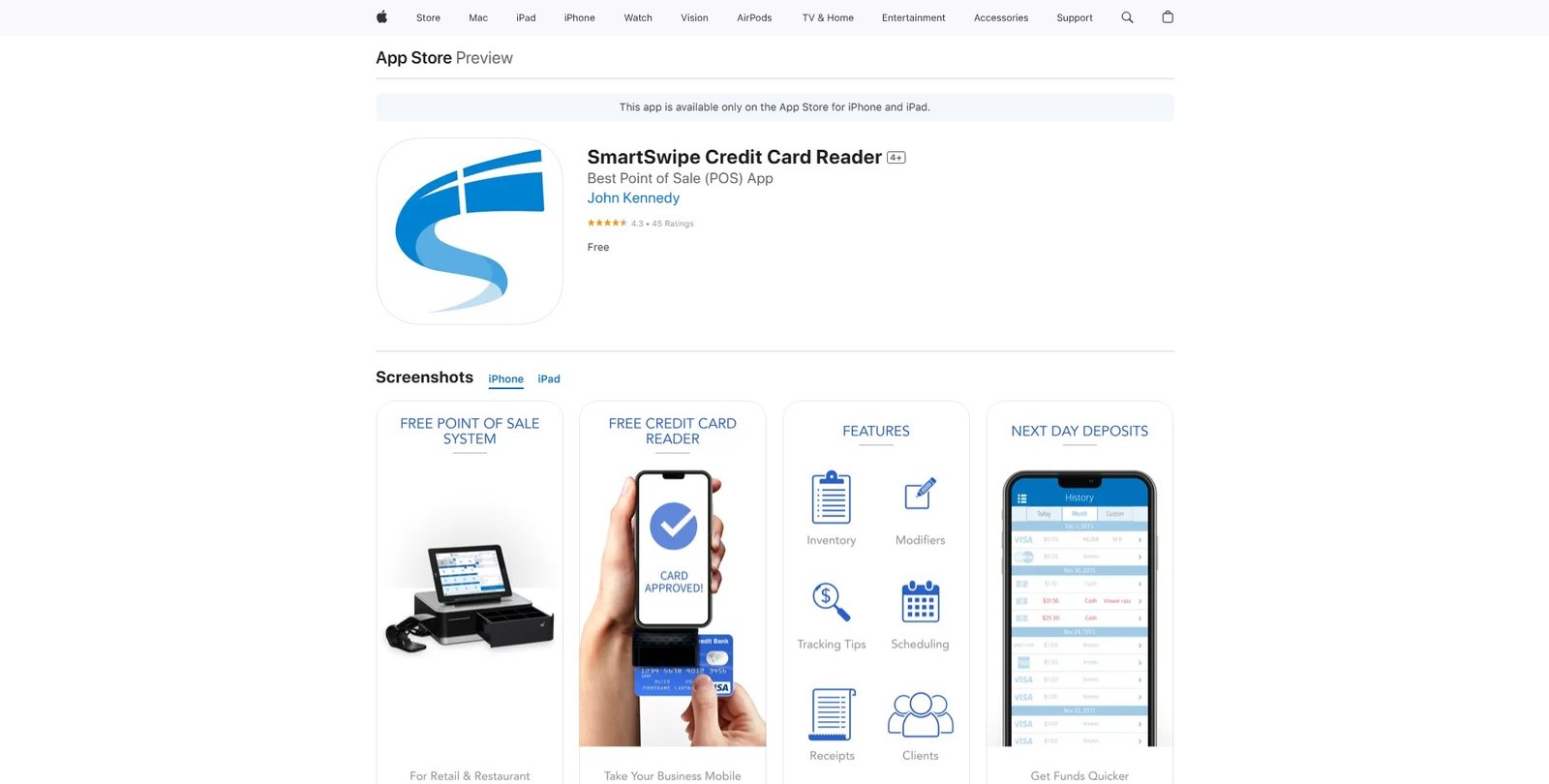Developing the SmartSwipe Credit Card Reader iOS app involves designing a robust, secure, and intuitive app for seamless credit card processing. Here’s a detailed roadmap for creating the app:
App Features:
Card Reader Integration: Support for hardware credit card readers (e.g., Square Reader or custom device). NFC support for contactless payments. Manual entry for card details as a backup.
Payment Processing: Capture and process payments securely. Real-time authorization for transactions. Split payments across multiple methods (credit/debit/cash).
User Management: Customer profiles for transaction history and receipts. Merchant accounts for managing funds and reports.
Transaction Management: Detailed transaction logs with filters (date, amount, customer). Issue refunds, void transactions, or generate receipts. Offline payment mode with auto-sync when online.
Reports & Analytics: Sales summaries (daily, weekly, monthly). Insights into customer spending trends and popular products.
Security: PCI DSS compliance for secure payment processing. Tokenization for sensitive data like card numbers. Biometric authentication for merchants (Face ID/Touch ID).
Notifications: Real-time transaction alerts. Payment failure/reversal alerts.
Additional Features: Multi-language support for global merchants. Tax calculations and tips. Support for multiple currencies.
Technology Stack:
Programming Language: Swift (for native iOS development).
UI Framework: SwiftUI or UIKit.
Payment SDK: Stripe Terminal SDK, PayPal Here SDK, or custom integration.
Database: CoreData or Firebase Realtime Database for local storage; cloud databases for syncing.
Hardware Integration: SDKs from manufacturers like Square, BBPOS, or custom APIs. NFC integration via Core NFC (for contactless cards).
Encryption: SSL/TLS for data transmission. AES encryption for local data storage.
Key Modules:
Authentication: Secure login for merchants (OAuth, biometric). Role-based access for multiple employees.
Card Reader Integration: Detect connected card reader via Bluetooth, audio jack, or USB. Handle swipes, dips (EMV), and taps (NFC).
Payment Workflow: Interface for inputting amounts and capturing payments. Real-time feedback on payment status (success, failure).
Transaction History: Display detailed logs with customer and transaction details. Export reports in CSV or PDF format.
Settings: Configure tax rates, tipping options, and currency preferences. Manage hardware pairing and firmware updates.
Development Workflow:
Design: Prototype with Figma or Sketch. Optimize UI for merchant ease-of-use and quick transactions.
Development: Set up hardware integration (e.g., card readers). Implement payment workflows and APIs for transaction handling.
Testing: Test with real hardware devices for swipes, dips, and taps. Simulate edge cases like network interruptions or failed payments.
Deployment: Ensure App Store compliance for apps handling financial data. Provide detailed setup instructions for merchants.
Compliance Note:
PCI DSS: Adhere to standards for secure data handling.
Strong Encryption: Encrypt all sensitive data (e.g., card numbers).
Audits: Perform regular security audits to ensure compliance.
